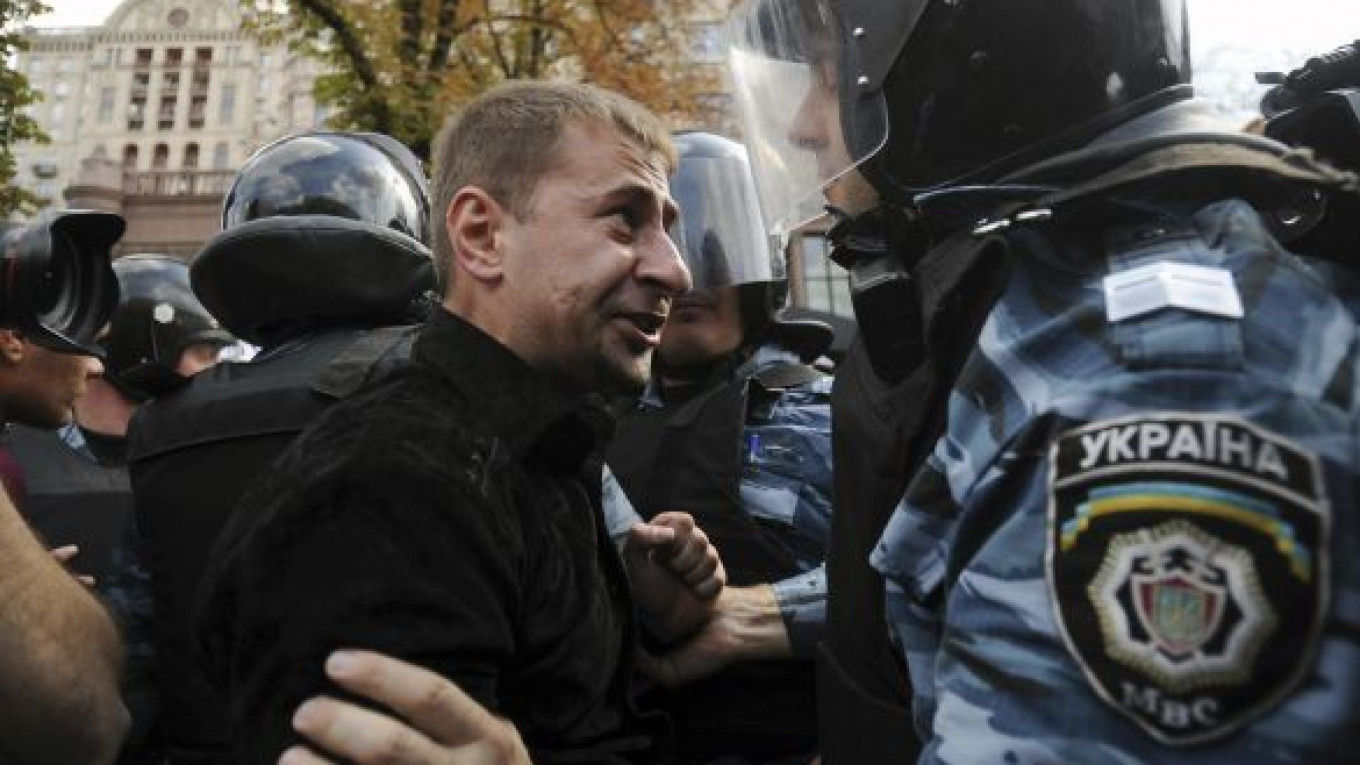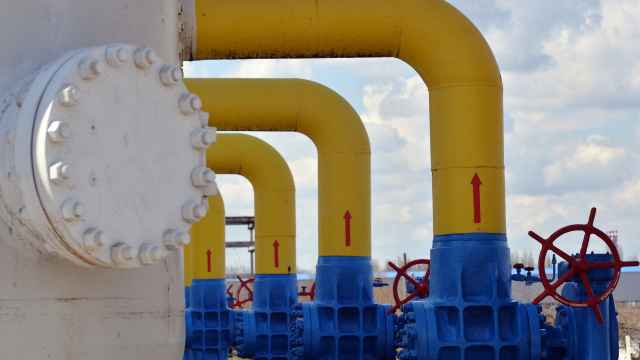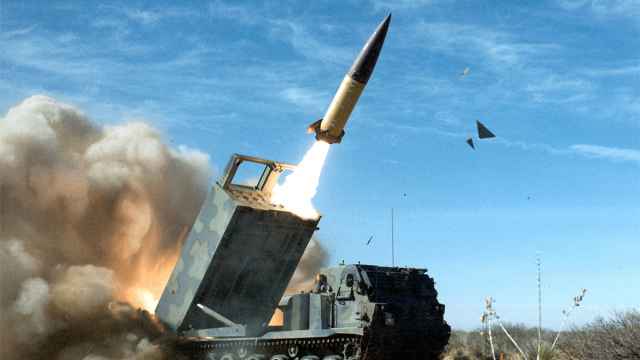KIEV — The trial of former Ukrainian Prime Minister Yulia Tymoshenko was abruptly put on hold for two weeks on Monday, after the United States and European Union expressed new concerns to President Viktor Yanukovych over her prosecution.
Judge Rodion Kireyev's adjournment until Sept. 27 "to guarantee the rights of the defense and provide extra time" caught both the prosecution and the defense team off guard. Tymoshenko herself had said she expected sentencing this week.
"We were surprised. We were ready for today's hearing," prosecutor Lilia Frolova said.
Tymoshenko, 50, who narrowly lost to Yanukovych in a bitter fight for the presidency in February last year, said: "This shows that the case has unraveled."
Yanukovych himself left Kiev on a two-day visit to Turkmenistan, and his spokespeople were not available for comment.
In Brussels, a spokesman for EU foreign affairs chief Catherine Ashton said she and U.S. Secretary of State Hillary Clinton wrote to Yanukovych on Friday. "It [the letter] was private in nature," spokesman Michael Mann said.
But a Brussels-based diplomat familiar with the text said: "I think it's fair to say the letter expresses concern about the state of democracy in Ukraine and refers specifically to the arrest and detention of Tymoshenko, which is troubling."
The diplomat said the EU and the United States had expressed their commitment to help Ukraine build a strong and prosperous democracy, in which the rule of law is paramount.
"It [the letter] talks about concerns about politically motivated trials in general, and says that such actions can harm Yanukovych's reputation," the diplomat said, adding that the letter urged him and his government to intervene with the courts.
Ashton had been expected by the Ukrainian side to visit Kiev at the end of the month to discuss prospects for an association agreement between the bloc and Ukraine, including the creation of a free-trade zone.
A spokeswoman for Ashton in Brussels said the date had never been confirmed. Ashton's agenda was full for September so no visit would take place this month, she said.
Tymoshenko has been on trial since June for abuse of office over a gas deal signed with Russia in 2009. She could face up to 10 years jail if convicted.
The Yanukovych administration says the deal left Ukraine paying an exorbitant price for Russian gas supplies. Tymoshenko, who denies the charge, says her trial is a political vendetta.
The United States and EU members have largely taken her side. Some EU members say the trial could block an agreement on closer ties and easier trader with Ukraine.
The trial has polarized politics. Hundreds of Tymoshenko's supporters have camped out overnight on Kiev's main thoroughfare throughout the summer to demonstrate solidarity. They say Yanukovych ordered the trial to neutralize her as a political figure ahead of parliamentary elections in October next year.
But many commentators say the trial has turned out to be a public relations disaster for him, bringing not only criticism from the West but also from Russia, with which Yanukovych's government is trying to negotiate a new price for gas.
Tymoshenko, a fiery speaker who led thousands of protesters during the 2004 Orange Revolution that sank Yanukovych's first bid for the presidency, had been in slow decline politically. But the trial and her subsequent detention, ordered by the judge for contempt of court, has resurrected her as a major force.
A Message from The Moscow Times:
Dear readers,
We are facing unprecedented challenges. Russia's Prosecutor General's Office has designated The Moscow Times as an "undesirable" organization, criminalizing our work and putting our staff at risk of prosecution. This follows our earlier unjust labeling as a "foreign agent."
These actions are direct attempts to silence independent journalism in Russia. The authorities claim our work "discredits the decisions of the Russian leadership." We see things differently: we strive to provide accurate, unbiased reporting on Russia.
We, the journalists of The Moscow Times, refuse to be silenced. But to continue our work, we need your help.
Your support, no matter how small, makes a world of difference. If you can, please support us monthly starting from just $2. It's quick to set up, and every contribution makes a significant impact.
By supporting The Moscow Times, you're defending open, independent journalism in the face of repression. Thank you for standing with us.
Remind me later.






